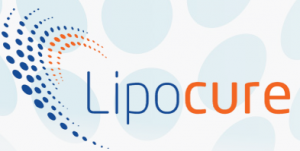LC-200
OPTIC NEURITIS
Optic neuritis, an early clinical manifestation of multiple sclerosis, is a severe inflammation of the optic nerve that may cause complete or partial loss of vision. Up to 50% of patients with MS develop an episode of optic neuritis, and in 20-30% of cases, optic neuritis is the presenting sign of MS.
Standard treatment for the acute phase of optic neuritis is high-dose intravenous steroids, which involve several significant risks and can have serious side effects in some patients, including elevated blood sugar, depression, insomnia, and gastrointestinal symptoms. LC-200 is expected to significantly improve safety and efficacy of corticosteroid therapy currently used for the treatment of optic neuritis.
MULTIPLE SCLEROSIS
Multiple sclerosis (MS) is an inflammatory disease of the central nervous system that is characterized by progressive neuronal loss that manifests clinically as worsening physical disability. In most areas of the world, prevalence of the disease is very high since MS patients have a long clinical course of disease. Corticosteroids are widely used concomitantly for the treatment of acute relapses of MS. Methylprednisolone is usually prescribed at 500-1,000 mg IV over the course of 5 days.
LC-200 is expected to improve efficacy and safety of the currently used corticosteroid therapy as well as better treatment compliance and results.
LUPUS ERYTHEMATOSUS
Lupus is an autoimmune disease characterized by acute and chronic inflammation of various tissues of the body. It is estimated that more 1.5 million Americans are diagnosed with this disease and more than 3 million Europeans. There is currently no cure for lupus, nor has there been a new drug to treat the disease. When lupus presents with mild or moderate symptoms, corticosteroids are used to counter inflammation. Severe conditions are usually treated with high-dose corticosteroids. In order to minimize the risks of serious side effects associated with corticosteroids, physicians tend to administer the lowest dose possible that will control symptoms, reducing the dosage over time. Reducing whole-body exposure to steroids and targeting them at higher concentration in the diseased tissue is a huge unmet medical need.
Steroidal liposomal nano-drug LC-200 passively targets affected tissues with significantly higher drug concentration and is expected to minimize the risks associated with high-dose corticosteroid treatment. LC-200 was tested in a preclinical model of lupus and proved to be more efficacious then free MPS.

